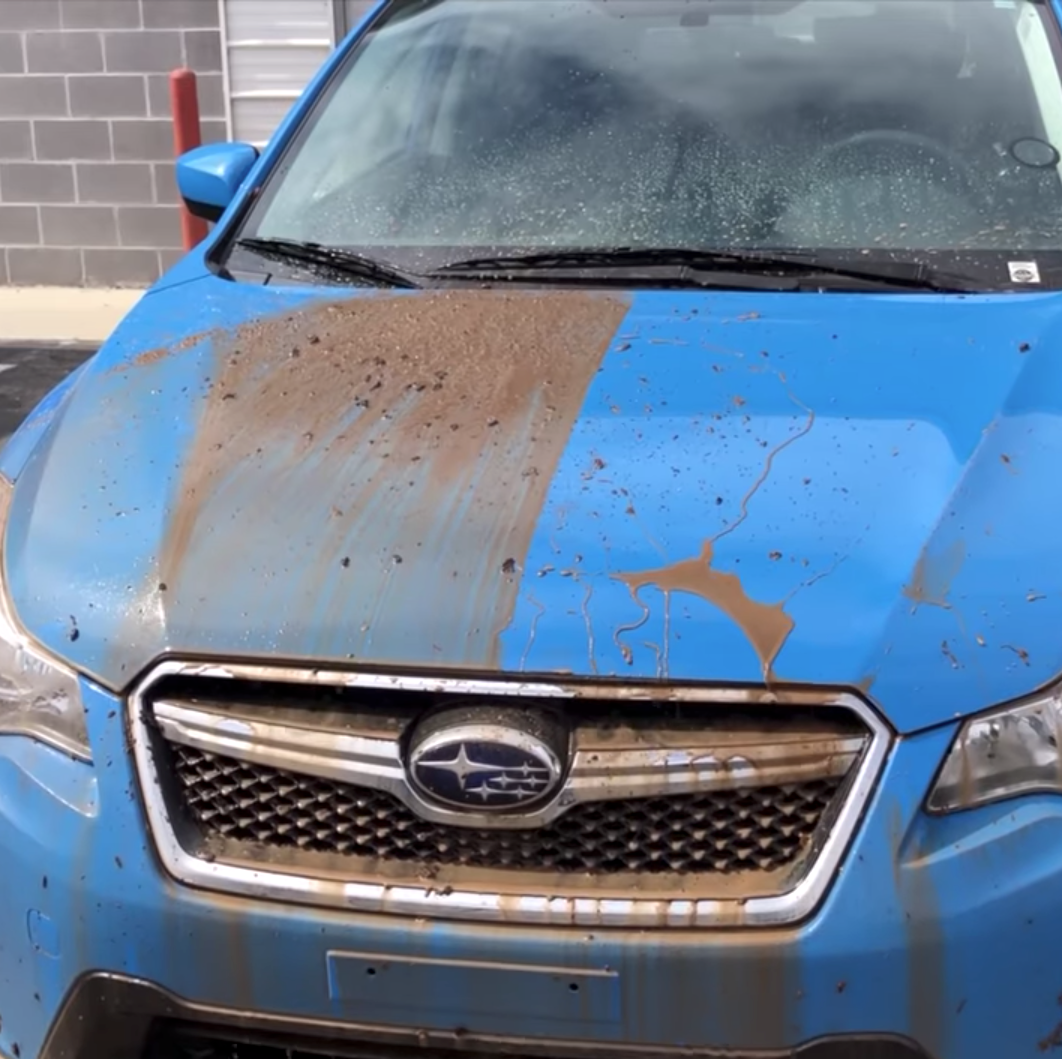Advanced Technology Behind Ceramic Coating Philadelphia for Ultimate Protection
Advanced Technology Behind Ceramic Coating Philadelphia for Ultimate Protection
Blog Article
Why Ceramic Layer Is the Ultimate Option for a Perfect Finish
Ceramic finishing has actually emerged as a leading solution for those seeking a perfect surface for their cars, thanks to its impressive longevity and protective features. What aspects really established ceramic coating apart?
What Is Ceramic Finish?

When applied correctly, ceramic covering develops a hydrophobic surface area that wards off water and dust, making it less complicated to keep and clean up. Unlike standard waxes or sealants, which generally supply brief security, ceramic coatings can last for numerous years, depending on the item quality and application approach. The procedure of using ceramic finishing needs thorough preparation, including detailed cleaning and often paint improvement, to make sure ideal bonding and effectiveness.
Ceramic layers are not restricted to vehicle surfaces; they can additionally be made use of on various products, including glass, steel, and plastics, offering a flexible remedy for boosting protection. Overall, ceramic finish stands for a significant improvement in surface protection modern technology, combining both aesthetic and useful benefits for a vast array of applications.
Benefits of Ceramic Finishing
While many surface defense options exist, the advantages of ceramic covering stand apart because of its unique residential or commercial properties and durable performance. One of the primary advantages is its remarkable toughness. Ceramic Coating Philadelphia. Unlike conventional wax or sealants that call for regular reapplication, ceramic finishings offer a resilient layer that can last for a number of years, substantially decreasing upkeep efforts
One more noteworthy advantage is boosted protection against environmental impurities. Ceramic finishings develop a hydrophobic surface that pushes back water, dust, and numerous pollutants, making it easier to clean up. This function not only preserves the lorry's appearance but also minimizes the danger of corrosion and oxidation, specifically in extreme weather problems.
Furthermore, ceramic layers use remarkable resistance to UV rays, protecting against fading and degradation of paint in time. This UV security is important for preserving the visual value of cars and surfaces revealed to route sunshine.
In addition, the glossy surface achieved with ceramic coating boosts the general aesthetic charm, providing surface areas a showroom-quality shine. Generally, ceramic coatings represent a considerable advancement in surface defense modern technology, giving long-lasting advantages that deal with both functional and aesthetic requirements.
How It Works
Comprehending the scientific research behind ceramic finishings discloses how they offer such impressive protection and longevity. At its core, a ceramic finish is a liquid polymer that chemically bonds with the lorry's manufacturing facility paint. This bonding creates a safety layer that is both hydrophobic and oleophobic, repelling water, dirt, and oil. The primary component of most ceramic coatings is silicon dioxide (SiO2), which is stemmed from quartz. This compound adds to the covering's firmness and resistance to scratches, UV rays, and environmental impurities.
The application procedure involves multiple steps, including surface area prep work, which is important to accomplishing optimum bond. Once applied, the finish goes through a treating process, during which it solidifies and forms a semi-permanent bond with the paint surface area. This bond is what identifies ceramic finishings from typical waxes and sealers, supplying a longer-lasting protective barrier that Clicking Here can endure for many years.
Furthermore, the density of the finish can improve its safety high qualities, guaranteeing that it can withstand harsh conditions. Eventually, the scientific research of ceramic finishes combines advanced materials with innovative application strategies to deliver an unequaled level of security and visual improvement for cars.
Contrast With Standard Techniques
The advantages of ceramic finishings become especially evident when compared to traditional paint defense methods such as waxes and sealers. While waxes supply a short-term luster, usually lasting a few weeks to a number of months, ceramic coverings give a resilient safety layer that can withstand for numerous years. This sturdiness dramatically decreases the regularity of reapplication, making ceramic coverings an extra affordable service in time.
Furthermore, conventional approaches typically require comprehensive prep work and multiple applications to attain a satisfactory level of protection. On the other hand, ceramic finishings bond at a molecular degree with the automobile's surface area, developing a durable shield versus ecological pollutants like UV rays, acid rain, and roadway salts. This bond boosts the vehicle's resistance to scratches and swirl marks, which prevail with standard waxes and sealers.
Additionally, the hydrophobic homes of ceramic coverings drive away water and dirt, causing easier cleaning and maintenance. In comparison, wax and sealant-treated surfaces can bring in grime, necessitating even more constant cleaning - Ceramic Coating Philadelphia. Generally, ceramic coverings not just supply remarkable security yet also supply an extra enduring and visually attractive finish, developing them as the recommended option for discerning vehicle proprietors
Application and Maintenance Tips

Making use of a foam applicator, use the coating in little areas, adhering to the supplier's guidelines relating to thickness and overlap. Permit adequate treating time between layers, usually 24 hours, to make sure proper bonding. After application, it is critical to avoid direct exposure to hop over to here water or rough aspects for a minimum of a week to permit the finish to fully heal.
For upkeep, clean the vehicle regularly with pH-balanced soaps and stay clear of abrasive products. Touchless cars and truck cleans are suggested to decrease scraping. Additionally, utilizing a ceramic upkeep spray can boost the layer's hydrophobic residential properties and durability. Regular examinations for any kind of signs of wear will assist maintain the covering's integrity and protect that beautiful coating.
Final Thought
In conclusion, ceramic layer emerges as a premium choice for attaining a perfect vehicle surface. By forming a robust bond with manufacturing facility paint, ceramic covering effectively shields against scratches, UV rays, and ecological contaminants.

Report this page